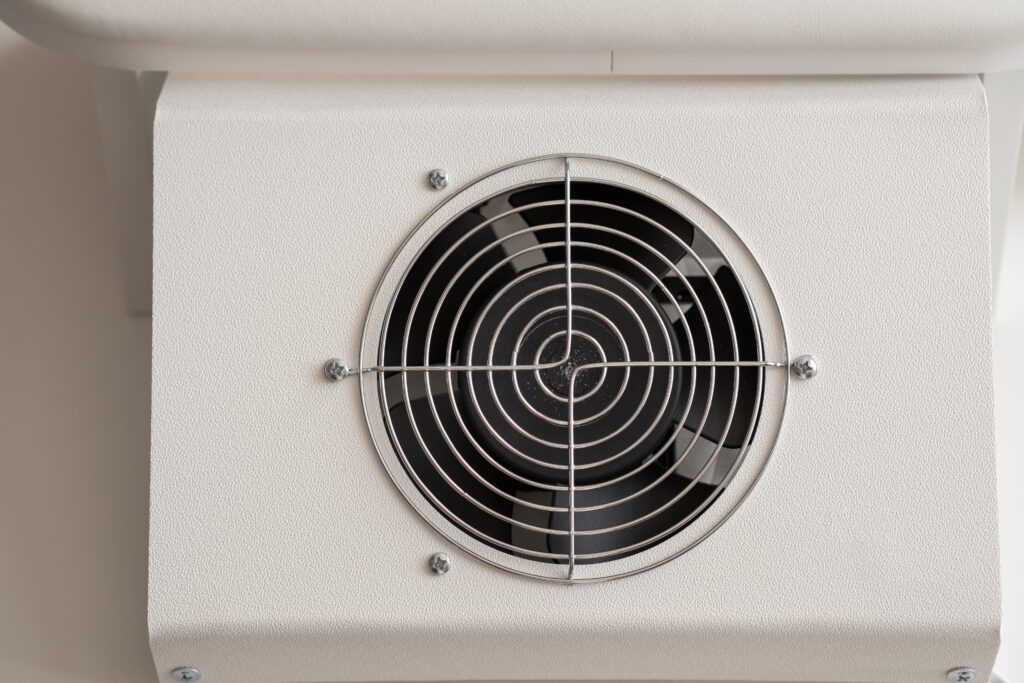Keeping your home’s HVAC system running efficiently is crucial for maintaining a comfortable living environment and ensuring energy savings. Regular maintenance not only prolongs the life of your system but also helps in improving its performance. In this article, we will explore five smart ways to maintain your HVAC system effectively.
Understanding Your Home’s HVAC System
Your HVAC (Heating, Ventilation, and Air Conditioning) system is the backbone of your home’s climate control. It regulates temperature and ensures that your indoor air quality remains high. To maintain your system, it’s essential to have a basic understanding of how it operates.
The Importance of Regular HVAC Maintenance
Regular maintenance is key to preventing small issues from becoming major problems. A well-maintained HVAC system can also improve energy efficiency, which translates to reduced utility bills. Routine check-ups can help identify potential issues before they necessitate costly repairs or replacements. Moreover, regular maintenance can extend the lifespan of your equipment, ensuring that you get the most out of your investment. Scheduling seasonal inspections, ideally before the heating and cooling seasons, can help you stay ahead of any potential malfunctions.
Key Components of Your HVAC System
Understanding the primary components of your system can facilitate better maintenance. Key elements include the furnace, air conditioner, ductwork, and thermostat. Each component plays a vital role in the overall efficiency of your system. Familiarizing yourself with these components enables you to monitor their performance more effectively. For instance, the furnace is responsible for generating heat, while the air conditioner cools the air during warmer months. Ductwork serves as the pathway for air distribution throughout your home, and a well-functioning thermostat ensures that your desired temperature is maintained. Additionally, filters play a crucial role in trapping dust and allergens, so regular replacement or cleaning of filters is essential for optimal performance and air quality.
Another important aspect to consider is the role of ventilation in your HVAC system. Proper ventilation is essential for maintaining air quality and ensuring that fresh air circulates throughout your home. It helps to eliminate indoor pollutants, moisture, and odors, creating a healthier living environment. Many modern HVAC systems come equipped with advanced ventilation options, such as heat recovery ventilators (HRVs) or energy recovery ventilators (ERVs), which can significantly enhance indoor air quality while minimizing energy loss. Understanding how these systems work can empower you to make informed decisions about upgrades or modifications to your current setup.
Smart Way 1: Regular Cleaning and Inspection
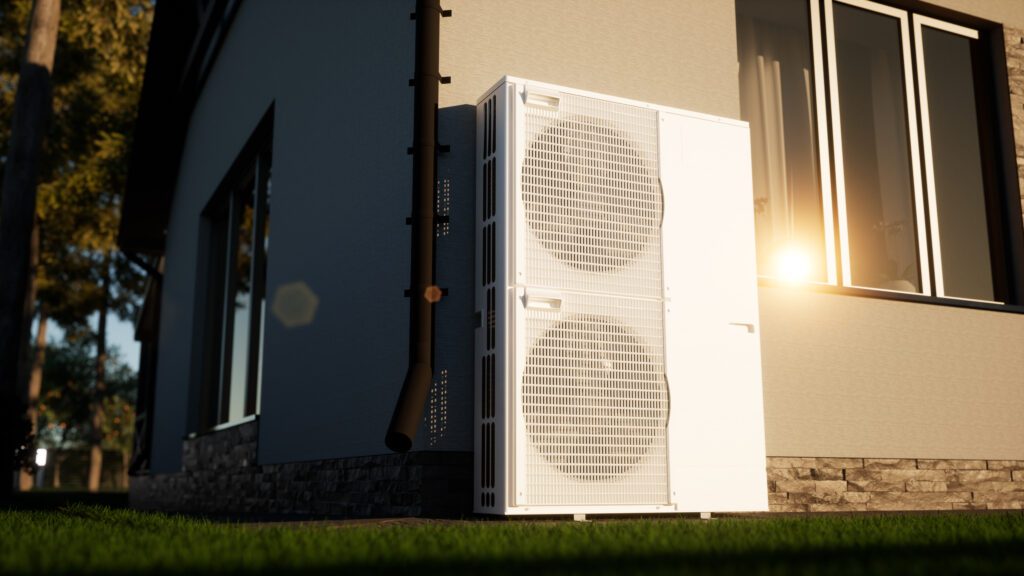
One of the most effective ways to ensure that your HVAC system is running smoothly is through regular cleaning and thorough inspections. Dust and debris can accumulate in your system over time, impacting its performance. Neglecting these tasks can lead to reduced airflow, increased energy consumption, and even costly repairs down the line. Regular maintenance not only keeps your system functioning optimally but also contributes to better indoor air quality, which is essential for the health and comfort of your household.
Tools Needed for HVAC Cleaning and Inspection
To clean and inspect your HVAC system, you’ll need some basic tools:
- Vacuum cleaner with a HEPA filter
- Duster and microfiber cloths
- Screwdriver set
- Brushes for coils
- Foam cleaning spray for the condensate drain
Having the right tools ensures that you can perform the cleaning process efficiently and safely. Additionally, consider investing in a pair of safety goggles and gloves to protect yourself from dust and debris that may be released during the cleaning process. A flashlight can also be helpful for inspecting dark corners or hard-to-reach areas within your HVAC system, ensuring that no potential issues go unnoticed.
Step-by-Step Guide to Cleaning and Inspection
Follow these steps to clean your HVAC system:
- Turn off the power supply to the unit to prevent any accidents.
- Remove any debris or dirt from the outside unit, including leaves and branches.
- Clean the condenser coils with a soft brush or a coil cleaner, taking care not to damage the fins.
- Inspect and clean the air handler, including fan blades and blowers.
- Check the drain pan and drain line for clogs and clean if necessary.
By committing to this routine cleaning, you can enhance your HVAC system’s overall efficiency and prolong its lifespan. Furthermore, while you’re at it, take a moment to check the air filters. Clogged or dirty filters can significantly reduce airflow and lead to system strain. Depending on your system and usage, filters should be replaced or cleaned every one to three months. Regularly changing the filters not only improves efficiency but also helps maintain a healthier indoor environment by trapping allergens and pollutants.
Smart Way 2: Changing Filters Regularly
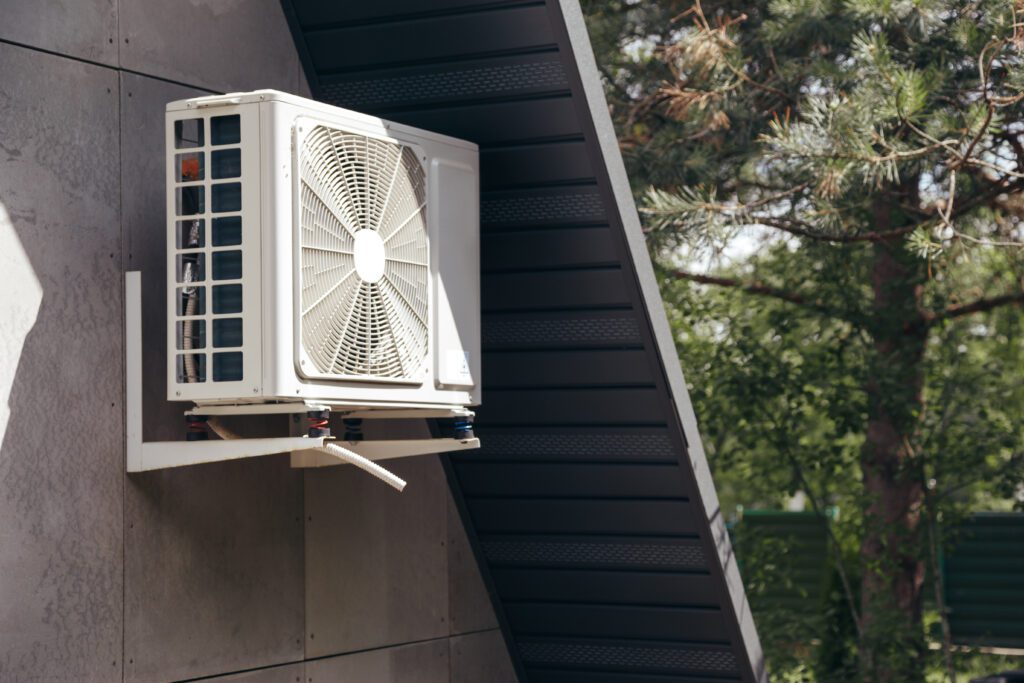
Filters are essential components of your HVAC system, as they capture dust, pollen, and other particulates from the air. Regularly changing your filters can significantly affect your system’s efficiency.
The Role of Filters in HVAC Systems
The primary function of HVAC filters is to keep indoor air clean and contribute to better airflow. When filters become dirty, they can reduce airflow, making the system work harder and potentially leading to breakdowns over time.
Understanding the type of filters your system uses and how often they need to be replaced can help you maintain optimal performance. Additionally, different types of filters, such as HEPA filters, pleated filters, and electrostatic filters, offer varying levels of filtration efficiency. HEPA filters, for instance, are particularly effective at trapping small particles, making them an excellent choice for allergy sufferers or households with pets.
When and How to Change Your HVAC Filters
Most experts recommend changing your HVAC filters every 1-3 months, depending on usage and the type of filter installed. Here’s a simple guide to changing your filters:
- Turn off your HVAC system to prevent it from running while you change the filter.
- Locate the filter compartment, which is typically near the air handler unit.
- Remove the old filter, noting its size for replacement.
- Insert the new filter, ensuring that it is oriented correctly based on the airflow arrows.
- Turn your system back on and monitor its performance.
By regularly changing your filters, you can maintain excellent indoor air quality and improve the efficiency of your HVAC system. It’s also worth noting that in addition to changing filters, homeowners should consider scheduling regular professional maintenance for their HVAC systems. This can help identify any potential issues early on and ensure that all components are functioning optimally. Furthermore, during peak seasons, such as summer or winter, when HVAC systems are used more frequently, you might find it beneficial to check your filters more often, as they can become clogged more quickly under heavy use.
Another aspect to consider is the environmental impact of your filter choices. Many manufacturers now offer eco-friendly filters that are made from sustainable materials and are designed to be biodegradable. By opting for these environmentally conscious options, you can help reduce waste while still ensuring that your indoor air quality remains high. Moreover, some smart HVAC systems come equipped with filter change indicators, which can alert you when it’s time to replace your filter, adding another layer of convenience to your maintenance routine.
Smart Way 3: Scheduling Professional Maintenance
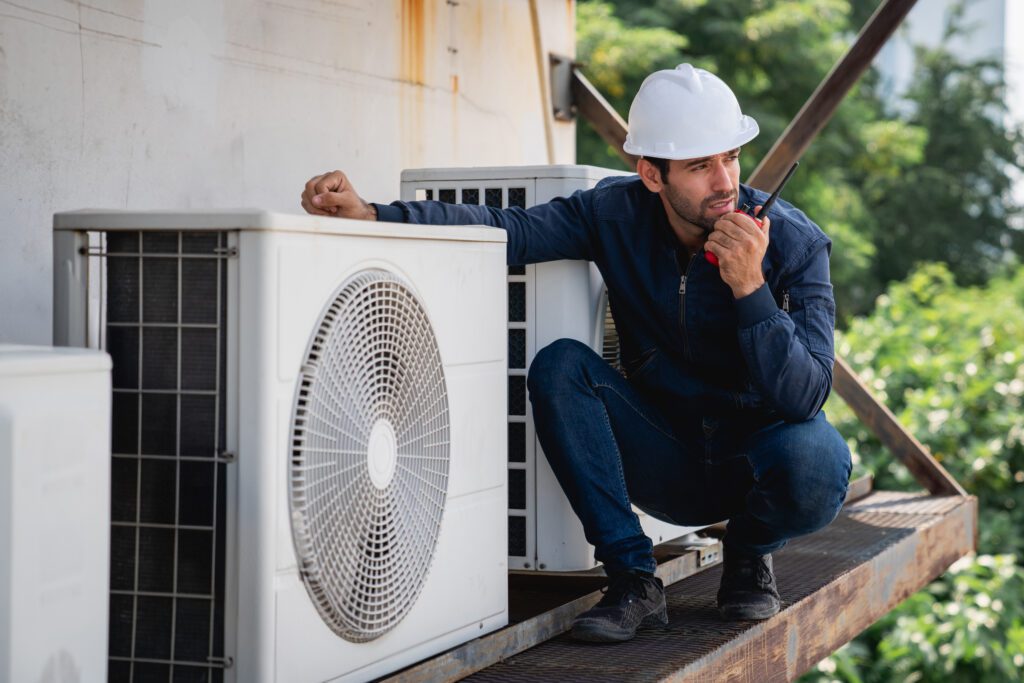
While DIY maintenance is necessary, scheduling professional check-ups is equally important. Regular professional maintenance can identify hidden issues that may not be apparent during a personal inspection. These trained technicians possess the expertise and tools to detect problems that might go unnoticed by an untrained eye, ensuring that your HVAC system remains in optimal condition throughout the year.
Benefits of Professional HVAC Maintenance
Enlisting the help of a qualified HVAC technician can lead to several benefits:
- Thorough inspections and servicing of all system components.
- Early detection of potential problems.
- Enhanced energy efficiency through expert recommendations.
- Improved indoor air quality through thorough cleaning.
Professional maintenance can save you money in the long run and ensure that your system operates at its best. Additionally, many HVAC companies offer seasonal maintenance plans that include regular check-ups, which can help you stay on top of your system’s needs without the hassle of remembering to schedule appointments. This proactive approach not only extends the lifespan of your equipment but also helps maintain a comfortable living environment by preventing unexpected breakdowns during peak usage times.
Choosing the Right HVAC Maintenance Service
When selecting a service provider, consider the following criteria:
- Check for proper licensing and insurance.
- Read customer reviews and ask for recommendations.
- Inquire about their maintenance plans and warranties.
- Evaluate their response time for emergency services.
Taking the time to choose the right HVAC maintenance service can significantly enhance the efficiency and reliability of your HVAC system. Furthermore, a reputable service provider will not only perform routine maintenance but also educate you on best practices for operating your system efficiently. They can provide insights on how to optimize your thermostat settings, the importance of regular filter changes, and tips for improving overall air circulation in your home. This knowledge empowers you to take an active role in maintaining your system, ensuring that it runs smoothly and efficiently for years to come.
Smart Way 4: Ensuring Proper Insulation
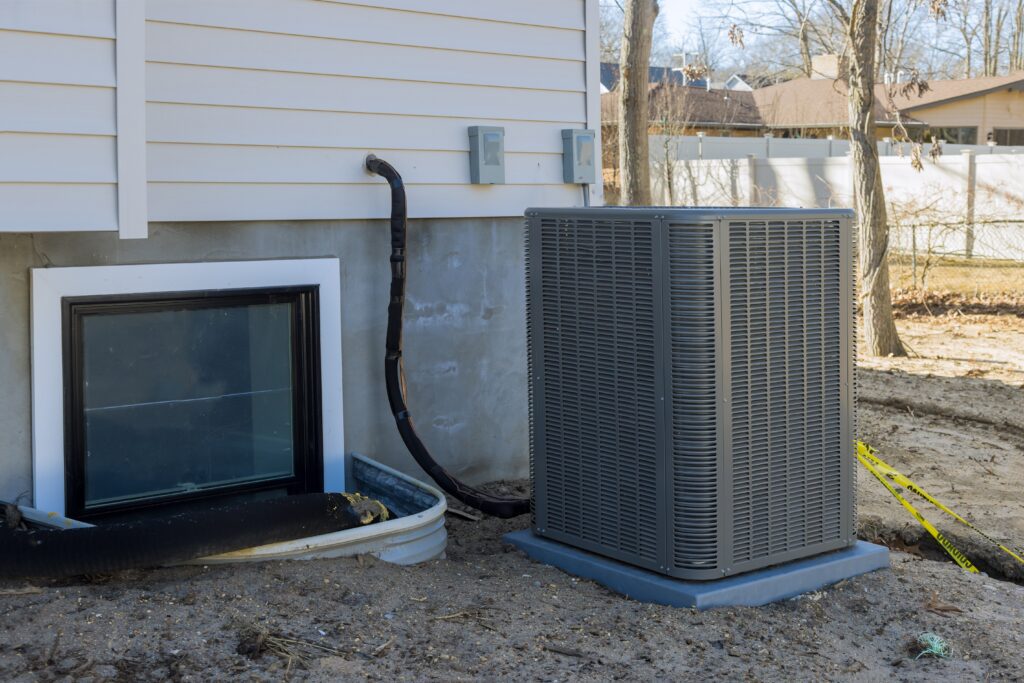
Insulation plays a critical role in maintaining your HVAC system’s efficiency. Proper insulation helps to keep your home at a consistent temperature, reducing the workload on your heating and cooling system.
The Connection Between HVAC Efficiency and Insulation
When your home is well-insulated, it can maintain its temperature longer, meaning your HVAC system doesn’t have to work as hard. This enhanced efficiency can lead to lower energy bills and an extended lifespan for your equipment.
Conversely, poor insulation can cause your HVAC system to run excessively, leading to higher operating costs and increased wear and tear. In fact, studies have shown that homes with inadequate insulation can lose up to 30% of their heating and cooling energy, making it crucial to address any insulation deficiencies promptly.
Tips for Improving Your Home’s Insulation
Here are some effective strategies to enhance your home’s insulation:
- Seal any gaps and cracks around doors and windows with weather stripping or caulking.
- Add insulation to your attic, walls, and floors as needed to meet recommended R-values.
- Consider using insulated doors and windows for additional protection against outdoor temperatures.
- Install radiant barrier insulation in attics to reduce heat gain during the summer months.
Improving your home’s insulation not only helps in maintaining your HVAC system’s efficiency but also creates a more comfortable living environment year-round. Additionally, proper insulation can help reduce noise pollution from outside, contributing to a quieter and more peaceful home atmosphere. This is especially beneficial if you live in a busy area or near a bustling street, where external sounds can intrude on your daily life.
Furthermore, investing in high-quality insulation materials can also enhance your home’s value. Prospective buyers often look for energy-efficient features, and a well-insulated home is a significant selling point. By prioritizing insulation improvements, you not only reap the benefits of lower energy costs and increased comfort but also position your home as a more attractive option in the real estate market.
In summary, maintaining your HVAC system efficiently requires a combination of DIY efforts and professional assistance. By understanding your system, cleaning and inspecting it regularly, changing filters, scheduling professional maintenance, and ensuring proper insulation, you can significantly improve your HVAC system’s performance and lifespan. These smart practices not only safeguard your investment in your home but also enhance the comfort of your living space.

